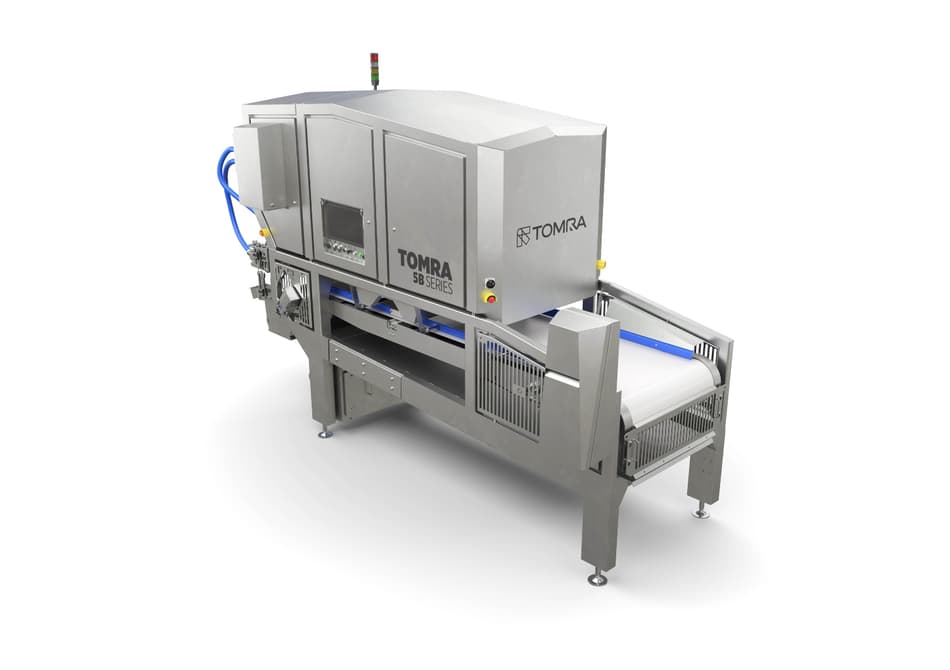Get in touch
Connect with us and discover what TOMRA can help your business achieve.
Every Resource Counts ™
.jpg)
The TOMRA 5B optical sorter has helped this well-established family business achieve a 16-fold increase in throughput, improved the removal of foreign materials and defective product, and reduced reliance on hard-to-find manual labor.
McCall Farms has been growing and canning vegetables in South Carolina, USA, since 1954 – yet it was in an astonishingly short timeframe, and very recently, that this 70-year-old business ramped up production volumes 16-fold.
In the years up to and including 2018, McCall Farms typically produced 18 million cans of green beans per year. By 2022, however, McCall’s output had skyrocketed to 304 million cans per year. A big reason for this giant leap forward was McCall's acquisition of a state-of-the-art TOMRA 5B optical sorting machine. Investing in the sorter has also paid back by significantly enhancing product quality and reducing problematic dependence on manual labor.
.jpg)
McCall Farms has come a long way since, as a family business with a 2,000-acre (809-hectare) farm, it switched from growing tobacco to canning vegetables when a new law required tobacco products to be labeled with health warnings. This move turned out to be very good for the business’ own health: today, McCall Farms is one of the USA’s leading providers of farm-fresh canned vegetables and fruit, producing 235 different products at its 93,000 square-meter facility in Effingham, South Carolina, on the northern banks of the Lynches River.
McCall Farms’ wide variety of Southern-style products – all grown in South Carolina and neighboring states – are sold under four major brand names across the USA. The business has now been family owned and run for six generations and employs more than 1,000 people.
It was difficulties such as recruiting and retaining people, however, which prompted McCall’s owners and managers to look for a new way to sort fresh vegetables, including green beans. McCall’s Maintenance Superintendent, Amanda Salisbury, explains: “It’s getting harder for businesses like ours to find and keep people for production line work, particularly for tasks such as sorting. We were having issues with keeping a large enough crew to keep the product free of defects. And even with a large crew of hand-sorters, we weren’t able to keep the product sufficiently defect-free for Grade A product. We needed to shift from manual to automated sorting.”
McCall Farms’ first move was to acquire sorting machines for its green beans, fresh cut for canning, from a manufacturer other than TOMRA. But this brought disappointment. Amanda said: “Those machines didn’t perform at the level we expected of an optical sorter. This left us vulnerable and scrambling to make up the difference with hand-sorters. Because we couldn’t always find enough hand sorters, we had mechanics and managers helping with the sorting. To facilitate optimal sorting of the product, we had to slow down production and had to reject loads that we couldn’t clean up sufficiently by hand.”
None of this was acceptable, of course. For one thing, food waste costs money. For another, McCall Farms has always set itself the goal of high product quality. “Whether it’s green beans or sweet potatoes or spinach or peanuts,” Amanda says, “our main goal is always quality. We want to offer the highest quality product on the market. This means we need consistency in our sorting. We want to eliminate critical FM [foreign material] contamination and we want the same high-quality results even when the raw product changes.”
It was clear to the Effingham plant’s managers and line operators that a more effective sorting solution was needed – and that perhaps the answer was staring them in the face, because the plant’s two TOMRA Sentinel II optical sorting machines were working well. The Sentinel II is a cost-efficient machine, simple to operate and maintain, which outperforms similarly-priced competitors in sorting ability, capacity, and durability – but now McCall Farms wanted something more, to handle greater quantities with even greater product quality. Discussions with TOMRA’s experts quickly identified that the best solution would be the TOMRA 5B.
.jpg)
The TOMRA 5B is the top-of-the-line belt sorter for green beans and many other products. By combining the latest sensor technology with advanced shape algorithms, this machine can reach the most challenging quality targets and yields. Its innovative 360° inspection, with smart surround view technology, boosts product quality and guarantees swift removal of foreign material, resulting in a highly efficient sorting process. And its flexibility and accuracy are complemented by gentle handling.

Amanda Salisbury recalls: “The performance difference of TOMRA’s sorters, compared to the others we had, is staggering. It’s a delight to watch them perform. When the installation engineer set up our programs, we got results above expectations – a 99% removal rate for all defects at TOMRA’s recommended capacity. We are achieving more consistent sorting and our product quality has risen substantially. We can now produce a consistently high-grade product while maintaining our preferred production speed. This has played an essential role in boosting production volumes – an increase to 16 times more cans in just four years.
“We have also greatly reduced our dependency on hand sorting, which is inconsistent, unreliable, and consumes management time. By reducing manpower, we have also reduced our production footprint. And TOMRA’s sorters are easy to maintain. All windows are easily accessible for cleaning and the cleaning mode is simple enough for the newest sanitation worker to use. The effectiveness of an optical sorter depends greatly on preventive maintenance, and TOMRA’s design and engineering make this easy.”
In addition to the two Sentinel II sorters and single TOMRA 5B currently sorting fresh-cut green beans for canning, McCall Farms’ Effingham plant now also uses two TOMRA Nimbus BSI+ sorters – with TOMRA’s unique Biometric Signature Identification technology to detect both the color and chemical composition of objects – for in-shell peanuts. And the business is so impressed with its first TOMRA 5B, it plans to buy another.
.jpg)
